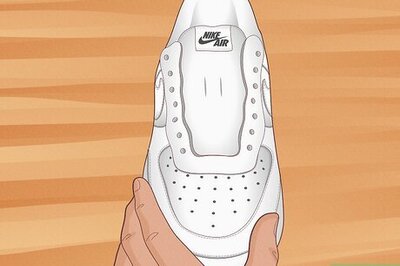
views
London: There's now scientific backing for the old adage that laughter is the best medicine, as a new study has claimed that a hearty chuckle promotes healing by speeding up blood flow.
It is likely to put you on the road to recovery more quickly than any hi-tech treatment, simply by increasing your blood circulation, said the researchers. A team led by researchers at the University of Leeds that carried out a five-year study of patients with leg ulcers found that a hearty laughter stimulates the diaphragm which, in turn, plays a vital part in moving blood around the body. It actually speeds recovery from leg ulcers, while expensive ultrasound therapy does little to help, they said.
This traditional method of nursing care, which is cheaper and easier to deliver, works just as well, the authors wrote in a paper published online in the British Medical Journal and Health Technology Assessment.
"The 'healing energy' of low-dose ultrasound can make a difference to some medical conditions but with venous leg ulcers, this is simply not the case," said Professor Andrea Nelson from the University of Leeds' School of Healthcare, who led the study.
"The key to care with this group of patients is to stimulate blood flow back up the legs to the heart. The best way to do that is with compression bandages and support stockings -- not 'magic wands' -- coupled with advice on diet
and exercise. Believe it or not, having a really hearty chuckle can help too. This is because laughing gets the diaphragm moving and this plays a vital part in moving blood around the body."
Venous leg ulcers are common in people with varicose veins or mobility problems whose "muscle pumps" in the feet and calves struggle to drive blood up to the heart. These ulcers can be painful and unsightly, having a significant
negative impact on health and quality of life. A number of studies in the past have suggested that ultrasound could be the best way to treat the ulcers. But, Prof Nelson, working with colleagues from the Universities of York and Teeside, and many NHS Trusts, have now shown that this is not the case.
The researchers concentrated on "hard to heal" ulcers that had not cleared up after six months or longer. Drawing on patients from across the UK and Ireland,
they found that adding ultrasound to the standard approach to care made no difference to the speed of healing or the chance of the ulcers coming back. Ultrasound also raised the cost of care per patient by almost 200 pounds.
Prof Nelson said" "Rising levels of obesity means that the number of people who suffer from leg ulcers is likely to grow. We do need to find ways to help those patients whose ulcers won't go away, but our study shows that ultrasound is
not the way to do that."




















Comments
0 comment